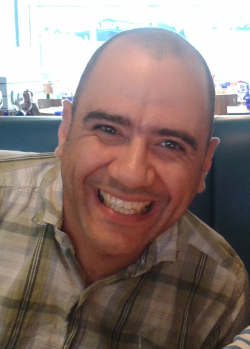Complex decision-making: when life mirrors work
 One of the many challenges of modern day general practice is the complexity that many of our patients have. We have multiple guidelines to help us decide what investigations to do, who to refer and what to prescribe. However, many of these guidelines are difficult to apply to the human beings that sit in front of us, with multiple medical, social and psychological issues. More often than not our patients are not text book examples of pathology. Sometimes we are presented with issues that defy textbooks and online patient decision aids.
One of the many challenges of modern day general practice is the complexity that many of our patients have. We have multiple guidelines to help us decide what investigations to do, who to refer and what to prescribe. However, many of these guidelines are difficult to apply to the human beings that sit in front of us, with multiple medical, social and psychological issues. More often than not our patients are not text book examples of pathology. Sometimes we are presented with issues that defy textbooks and online patient decision aids.
The result of this is that there can often be uncertainty about the decisions that we make on behalf and with our patients. We always want to do the right things by them and also by the NHS as a whole, but at the time we can’t always be certain that the right course of action has been taken, or even if there is actually a right course of action. As GPs we then have to contend with uncertainty about many of the decisions we make about patients.
In recent months GPs in Birmingham, and particular Cross City CCG, have had many decisions to make about the future. The decisions about joining a super-partnership, joining and supporting BIG (a limited company set up to bid for anticipated non-core contracts that didn’t materialise) and also making decisions about opting back in for out of hours care have been difficult. There has been a need for information about all the options
available and opinion about the consequences of each decision.
In the wider context, each person in the country has had the opportunity to give their opinion about the future of the UK’s relationship with the European Union. The decision that each individual made will hopefully have been fully informed, but what is certain is that there is now a period of political and economic uncertainty that seems to have been unsettling. As a result, at the time of writing, each of the two main political parties is trying to decide what type of leader they want, the junior doctors have made a decision to reject the latest contract offer from the Department of Health. All of these things are causing uncertainty.
It strikes me that those that find themselves unsettled, upset and even angry at the political and medico-political uncertainty that appears prevalent over the last few months may just have got a taste of what GPs have to cope with, day in and day out, when they have to make potentially life changing decisions for the patients, sometimes without as much information as they would like, often with the pressure of time and always trying to juggle the consequences of decisions made on both individual lives, as well as their local practice and health economy.
Samir Dawlatly is a GP partner at Jiggins Lane Medical Centre and Board Member of Our Health Partnership. The views expressed here are his own and don’t necessarily represent that of any organisation he works for.
